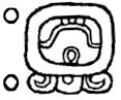 Today can be seen as a day to resolve any outstanding issues you may have been trying to ignore, the “elephants in the living room.” It is a good stable day to clear the air of anything which might have been interfering with your progress.
Today can be seen as a day to resolve any outstanding issues you may have been trying to ignore, the “elephants in the living room.” It is a good stable day to clear the air of anything which might have been interfering with your progress.
Any day is a good day to practice forgiveness, but Ajmak days bring a special power with them. It’s easy enough to forgive in words, but is it just lip service to the idea? When the situation arises, or you meet the “offender” again, what is your reaction? Likewise, if there is something you have asked to be forgiven, how do you feel when you meet that person you ask it of? Is there still an unspoken unresolved issue, an energy which needs to be addressed?
As we see Ajmak paired with the number 4, the task today is to bring that forgiveness into the physical, material realm. It is the time to ground it, to sit down with it and buy it a drink. Forgiving and being forgiven can release stagnant energy which may have been holding you back, but today is the day to prove that you are ready to move on. It is a day to rebuild bridges you may consider burnt through physical action, to prove that your forgiveness is more than just lip service to an idea. It is a day to truly bring sweetness into your world through your deeds as well as your words.
I am sorry
Please forgive me
I love you
Thank you
When the creators fashioned the four first men, the Bacab’ob, they created them as equals. These four first humans had superhuman abilities, including the ability to see through space and time. As equals were not desired, the gods smoked the mirror of perception, giving us our human set of senses. When we lost the ability to see through time, we lost the ability to see the true consequences of our actions and thus we needed to start asking for forgiveness. Sometimes even well meaning actions can cause problems at a later date. Ajmak represents this ability to forgive others, the ability to forgive ourselves and the ability to accept forgiveness.
Ajmak is a sensual energy, which creates some of the reasons for its needing to be forgiven. It is kind and very lovable, but irresponsible. It can be a very talented energy, with great ideas. However it can also be very easily distracted, especially by anything that makes it feel nice. This often leads Ajmak to failing to fulfil its true potential, although due to its lovable nature it is easy to forgive. One of the lessons with regards to the Ajmak energy is learning to forgive oneself.
The number 4 is very important within Mayan mythology. Four represents the cardinal points, the four colours of maize, the four carriers of the year, the two equinoxes and two solstices, as well as midnight, sunrise, midday and sunset. The number four is representative of the four first men, who raised the sky from the sea to create the world we live on. In Mayan myth it is four pillars that support the sky from the Earth. As you can imagine, four is a number which represents stability, a solar number. Even though it is still low, it is thought of as a good number.


















